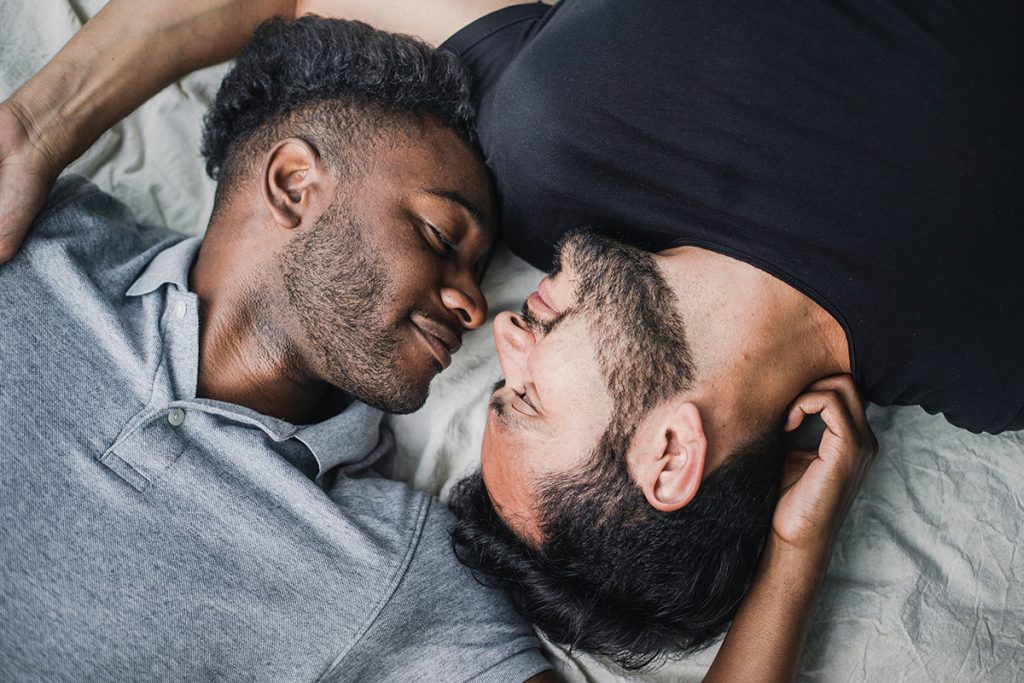
It is an unfortunate but well-known fact that public school sex education is less than satisfactory. Many of us got very little if any sex education. Those of us who did get a sex education course or lecture were often told that abstinence was the only safe way to have sex. Most sex-ed programs are not great—but they are even worse if you happen to identify as LGBTQ+. Many of these programs simply ignore the fact that some people will not solely have sex with members of the opposite sex and therefore neglect to educate on the other possibilities.
When They Do Talk About It
Sometimes it is even worse when the sex education programs involve LGBTQ+ issues or queer sex. These programs can be full of stereotypes, outdated information, unfair assumptions, and misinformation. For instance, a lot of sex-ed programs out there will push the narrative that all queer people are promiscuous or have frequent and multiple partners without using protection, some still perpetuate facts that are no longer true about AIDS/HIV, and some simply depict homosexuality as disgusting, gross, unnatural, or unsanitary.
What They Forgot to Tell Us
Here are some things they forgot to tell us about sex when you are LGBTQ+:
1. Safe sex might look a little different.
If your sex education program even discussed protection, it’s likely that the only methods that were described were condoms and/or birth control pills. Birth control pills don’t help to protect from STDs and condoms don’t help if neither of you has a penis. Other methods of having safe sex might be more relevant to people who are LGBTQ+ such as dental dams, finger cots, lube (yes, lube can be part of a safe sex practice).
2. The risks may be different—but not necessarily in the way they say it is.
A lot of us heard horror stories about the risk of HIV transmission among gay men, even if those statistics were very different by the time we had sex ed. The truth is that the risk of transmitting STDs is different among gay men, lesbian women, and straight couples. First, gay men are more at risk for transmitting STDs, but not because of HIV. Anal sex in general is one of the riskiest sex practices because fluids and semen are able to directly enter the bloodstream (especially if you do not use enough lube and cause tears). That is a good reason to always ensure you use enough foreplay, lube, and condoms as necessary when engaging in anal sex. Second, lesbians can transmit STDs to one another, however, the rate of transmission is substantially lower (like 2-6%). Just like with straight sex, any time fluids are exchanged or spread, there is a risk for disease transmission.
3. Sex When Trans Can Be Complicated
If you are a trans man or woman, your risk for STD transmission or pregnancy is based on your specific anatomical and hormonal composition. You should never assume that just because you have been on testosterone or estrogen for a long time that you are no longer capable of becoming pregnant or impregnating someone unless specifically told by your doctor. Continue to use safe sex practices based on your anatomical composition regardless of your status of transition and communicate frequently with your doctor on how your transition (if applicable) might impact your sex life and safe sex practices.
4. Safe Sex For LGBTQ+ People is About More than Just Protection
Unfortunately, safe sex extends beyond the simple act of putting on a condom for people who are LGBTQ+. People who identify as queer or trans in any way are at a much higher risk for harassment and violence than straight folks. This means that going places like bars, clubs, dances, or having sex in public or semi-public spaces is even riskier for you than for a straight person. The risk of getting caught may be more than just embarrassing, but may be considered even more offensive to whomever you are caught by, so taking extra steps to protect yourself from outside danger is part of what you should consider when engaging in safe sex practices. Be careful and know your área when you decide to date, hookup, or have sex as an LGBTQ+ individual.
As always, if you have any questions or concerns about safe LGBTQ+ sex or any other topic in the world of sex and sexuality, talk to your doctor or schedule a consult with Dr. Stacy today. If you or your partner are experiencing sexual concerns of any kind, it may help to talk to a professional. Dr. Stacy Friedman holds a Doctorate degree in Human Sexuality in addition to a Masters in Clinical Sexology and is a Certified Sex Coach. She offers remote complimentary 15-minute consultations and ongoing coaching sessions. Call 561-899-7669 or visit https://drstacyfriedman.com/ to schedule a consult today.